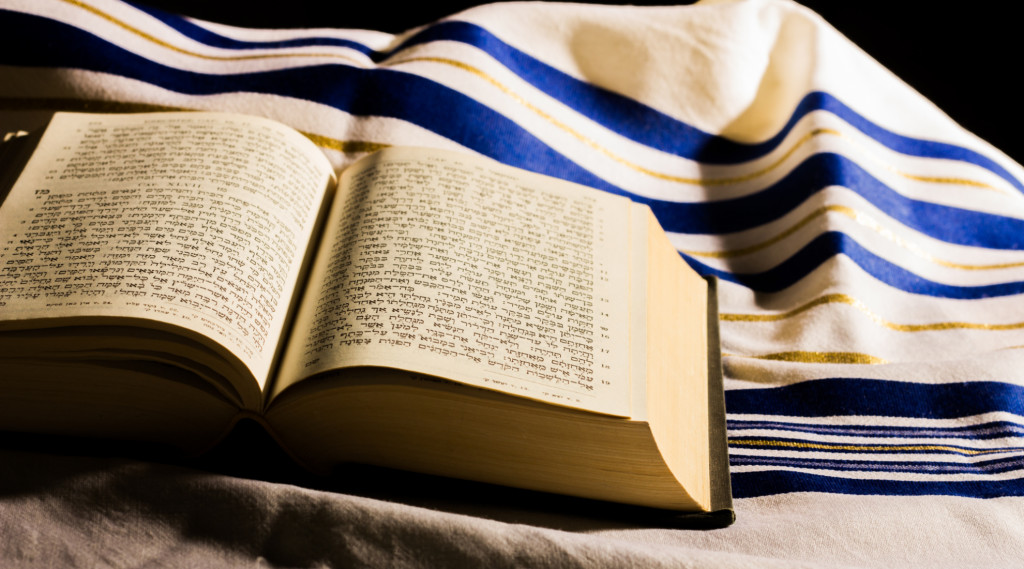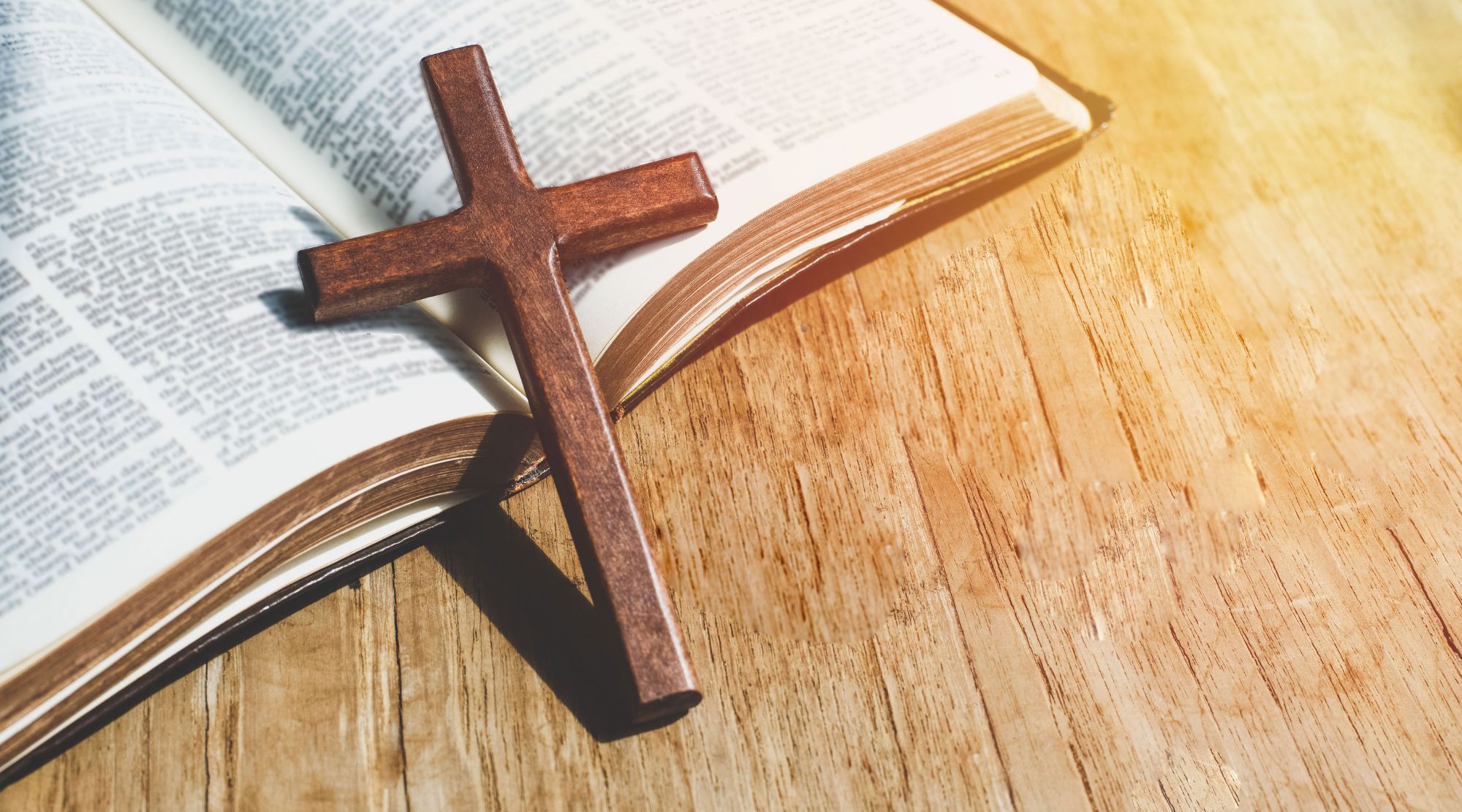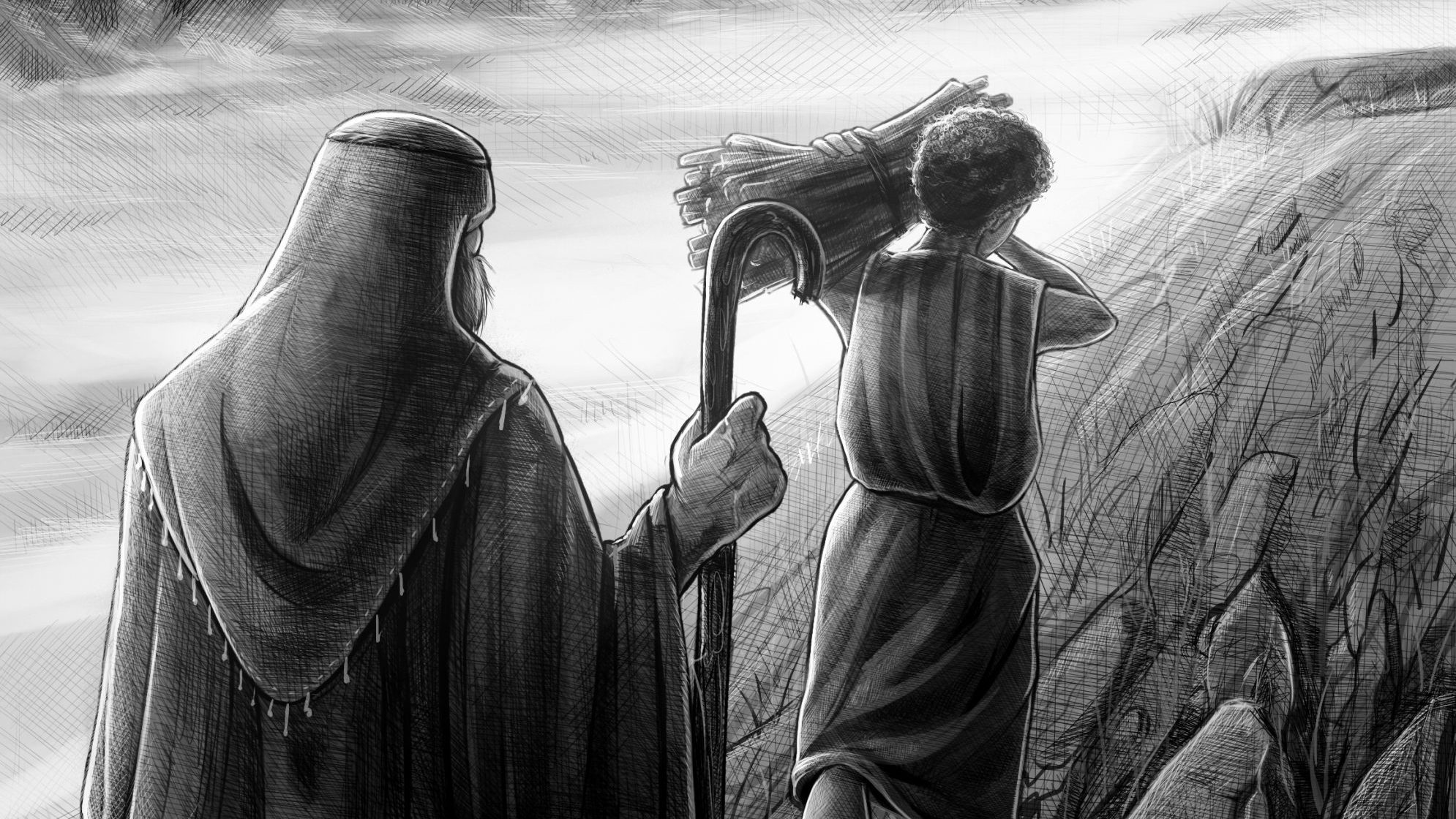
The Scripture is such a wonderful book. Its stories give us a clear revelation of God’s plan of salvation. The more we understand Bible stories, the better insight we gain into the beautiful truth of the redemption God has provided us through His Son, Yeshua. In this blog, we will examine Abraham’s obedience to sacrifice Isaac at Moriah and see how the story points to the New Testament teachings of the apostles about Christ in the Passover.
But before we go into the nitty-gritty of our study, which will touch on Isaac’s binding and Christ in the Passover, let’s consider the relationship between stories in the Old Testament and revelations of the New Testament.
The Old and the New Testaments in the Light of Our Redemption
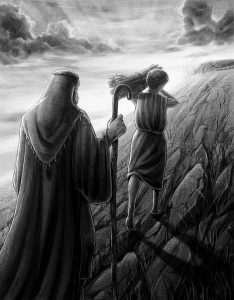 The Bible is a book about redemption. If you’ve ever struggled to understand a Bible text, it is probably because you have not read it in light of God’s love for humanity. In my opinion, that is where many religious Jewish people go wrong in their interpretation of the Scriptures and the concept of Christ in the Passover. As believers in Yeshua, we must be careful not to fall into the same error.
The Bible is a book about redemption. If you’ve ever struggled to understand a Bible text, it is probably because you have not read it in light of God’s love for humanity. In my opinion, that is where many religious Jewish people go wrong in their interpretation of the Scriptures and the concept of Christ in the Passover. As believers in Yeshua, we must be careful not to fall into the same error.
In II Timothy 3:15, the Apostle Paul told Timothy that the Scripture’
s central message is salvation through faith in Yeshua. In a similar manner, Yeshua taught His disciples that the things written in the Law of Moses, the Prophets, and the Psalms are about Him (Luke 24:44).
When we put these two Bible passages (II Timothy 3:15 and Luke 24:44) together, we can see something remarkable: God’s plan to redeem man from sin. Understanding this is key to understanding the concept of Christ in the Passover, as taught in the epistles.
In the Old Testament, God communicated His plans to the people through the prophets (Hebrew 1:1). Apart from these prophecies, God also figuratively conveyed His salvation plan in the Old Testament through several key events.
The story of Isaac’s binding recorded in Genesis 22:1-15 is a classic example of an event that figuratively illustrates the redemption Yeshua purchased for humanity and Christ in the Passover.
Isaac’s Binding and Christ in the Passover
God asked Abraham to sacrifice Isaac to Him on Mount Moriah. While they were still on their way to Moriah, young Isaac saw the fire and the wood for the sacrifice and asked his father where the lamb for the burnt offering was. Abraham answered him that God would provide the sacrificial lamb Himself.
As we will see in this blog, Paul and other apostles referred to this story to explain Christ in the Passover to the early church. Since the Bible is a unified book that makes us wise unto salvation, we can look closely at Genesis 22:1-15 and see how it points to Yeshua’s sacrifice for our sins.
Genesis 22:8 in Light of Christ in the Passover
 And Abraham said, “My son, God will provide for Himself the lamb for a burnt offering.” So the two of them went together.
And Abraham said, “My son, God will provide for Himself the lamb for a burnt offering.” So the two of them went together.
The story of Abraham’s sacrifice caused me to ask several questions as a young believer. First, I wondered why God would give Abraham a son in his old age and then request him to sacrifice the same son only a few years later. Second, why did Abraham tell Isaac that God would provide the lamb for the offering even though he had been instructed to sacrifice Isaac? Somehow, it seems Abraham knew he would not sacrifice Isaac. It seems as if he foresaw Christ in the Passover. You are probably asking, “How did he forsee Christ?” Let me explain.
My first reason is found in Genesis 22:5.
And Abraham said to his young men, “Stay here with the donkey; the lad and I will go yonder and worship, and we will come back to you” (Genesis 22:5.)
Here, Abraham assured his servants that they (he and Isaac) would return to them after offering the sacrifice.
My second reason for thinking Abraham foresaw Christ in the Passover is based on what is written in Hebrews 11:17-19.
By faith Abraham, when he was tested, offered up Isaac, and he who had received the promises offered up his only begotten son, of whom it was said, “In Isaac your seed shall be called,” concluding that God was able to raise him up, even from the dead, from which he also received him in a figurative sense. (Hebrews 11:17-19)
The comment of the writer of Hebrews in the passage above gives us another insight into Abraham’s thoughts when He tied his son for sacrifice. It shows that Abraham had come to know God as one who cares for His own and provides for their needs. As a man of faith, Abraham believed God would provide for him. I believe this insight will help us personally understand the concept of Christ in the Passover in a greater way!
Also, Abraham knew that God’s provision of a lamb for the sacrifice was symbolic. It meant He would provide for the fundamental need man has had since the fall in the Garden of Eden – salvation from sin. So, just as God provided a lamb for Abraham in the Old Testament, He provided Yeshua for us in the New Testament.
Christ in the Passover: From Shadow to the Redeemer Himself
For indeed Christ, our Passover, was sacrificed for us (I Corinthians 5:7b).
Now we understand God’s reasons for instituting the Passover feast in Exodus 12. The feast was to figuratively illustrate what the Messiah would do when fulfilling God’s salvation plan. In the same way the Israelites slew the Passover lamb in Exodus 12 and its blood protected them from death, Yeshua was sacrificed for us, and His blood became our path to eternal life!
Through Yeshua’s sacrifice, redemption and forgiveness of sins are available to all. This is our theme message to Israel and the whole world. Christ in the Passover paid the price!
Final Thoughts
God communicated His salvation plans through several events in the Old Testament, and Isaac’s binding in Genesis 22 is a good example. Christ in the Passover (His death and resurrection) purchased redemption for the whole world. God’s divine provision of a lamb for Abraham in Genesis 22 is a shadow of the sending of Yeshua to die for our sins. In the same way God provided a sacrificial lamb for Abraham, He also provided a Lamb (His only Son, Yeshua) to redeem us from our sins.
Today, like Paul, we who have believed can boldly declare that our sins have been forgiven because Yeshua, our Passover, was sacrificed for us. But beyond being joyful about our identity in Yeshua through the sacrifice of Christ in the Passover, we must also preach the good news to those around us who have yet to come to a saving faith.
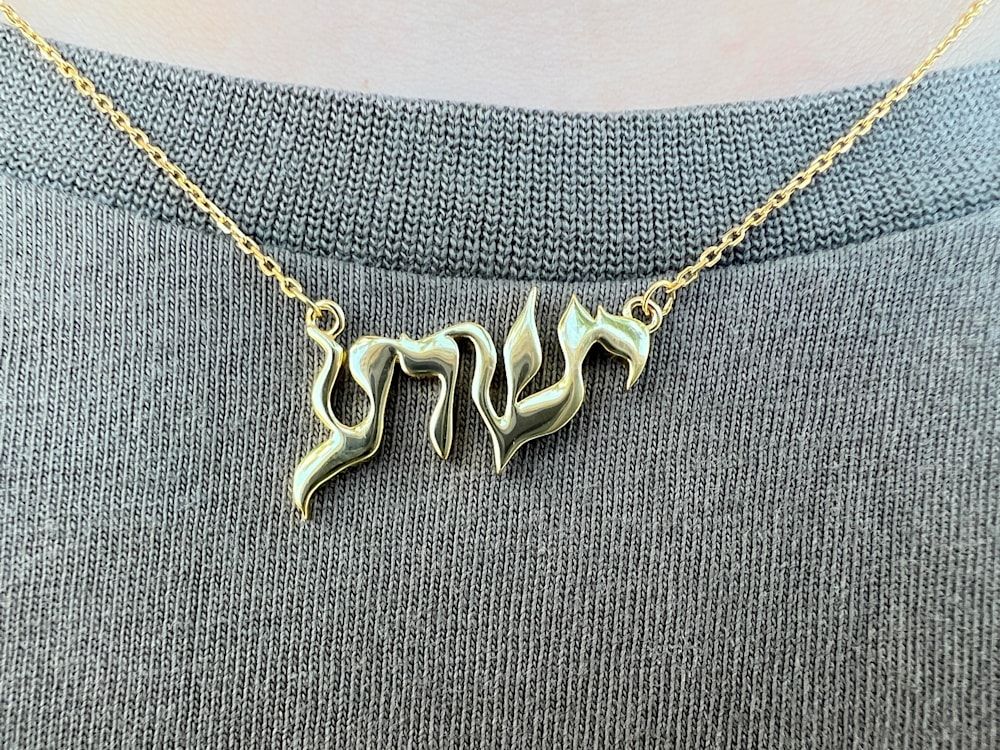
Yeshua Necklace in Hebrew - Gold or Silver
It is a critical time for us to proclaim the name of Yeshua to Israel and to the world. If you’re watching the news, antisemitism is on the rise! My people are under attack. And as you probably realize now, Israel is also divided, and a house divided against itself cannot stand (Mark 3:25). The only One who can save Israel is Yeshua. I have created a new piece of jewelry, silver and gold necklaces, to call supporters of Israel to declare the name YESHUA over Israel. They are available in both Hebrew and English (Yeshua).
Order Yours Now


